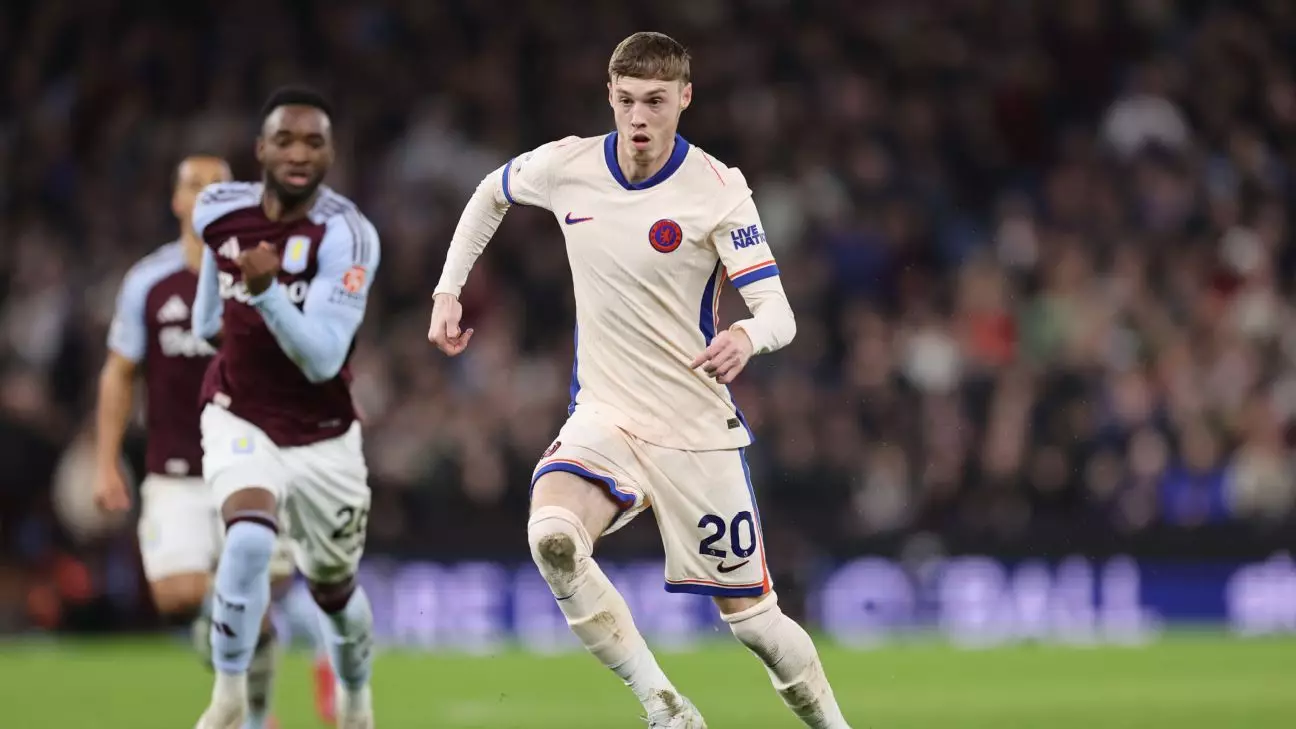Chelsea finds itself in a precarious situation, currently sitting in seventh place in the Premier League after a disheartening 2-1 loss to Aston Villa. As the season progresses, the team’s reliance on certain key players has come under scrutiny, particularly in the case of young midfielder Cole Palmer. With a notable absence of form, Palmer’s performance has sparked conversation among fans and critics alike, leading to questions about his influence on the squad’s overall effectiveness.
Compounding this issue is the pressure Palmer faces to perform, particularly as he has not found the back of the net in his last six outings dating back to mid-January. During this slump, the young star has squandered significant scoring opportunities that have led to critical losses for the team, including a match against Manchester City where a potential goal could have shifted momentum in Chelsea’s favor.
Head coach Enzo Maresca acknowledged the weight of expectation on Palmer during a recent press conference. He expressed concern regarding the team’s over-reliance on their young talent, stating that this dependency is impacting not only Palmer’s confidence but the entire squad’s performance. The former Manchester City player has become a focal point for Chelsea; however, each game he plays under the burden of needing to deliver a goal or assist exacerbates the pressure.
Maresca’s insights underline a broader issue within the Chelsea framework. While Palmer’s initial successes contributed positively to the team, the recent struggles demonstrate how vital it is for the squad to function as a cohesive unit rather than placing undue expectations on one individual. This reliance can lead to frustration, where players like Palmer become visibly upset during matches—further feeding into the narrative of his struggles.
Criticism has emerged regarding Palmer’s body language during games, often described as frustrated after missed opportunities. Observers note that his demeanor may indicate a deeper discontent within the team. However, Maresca has dismissed these interpretations, suggesting that frustration is a natural response to collective underperformance, not just Palmer’s. The missteps against Aston Villa and previous matches against Brighton and Manchester City highlighted a pattern of missed chances that plague Chelsea, indicating a collective rather than a singular problem.
Moreover, the young midfielder’s visible distress is symptomatic of broader issues within a struggling side: teammates share the burden of failed opportunities, suggesting a lack of support or unity in tackling challenges on the pitch. Maresca hinted at a communal responsibility, emphasizing that for any team to succeed, it must cultivate a culture where success is collective rather than based on individual brilliance.
Looking ahead, Maresca is optimistic about Palmer’s return to form, suggesting that consistent hard work is essential for the young star to rediscover his scoring touch. The coach emphasized that Palmer’s recent performances, despite lacking goals, still contribute positively to Chelsea’s attacking dynamics. Each player’s contribution should be recognized, and the coach’s affirmation of Palmer’s importance demonstrates a commitment to his development, notwithstanding recent challenges.
Maresca’s confidence in maintaining goalkeeper Filip Jørgensen suggests a steadfast approach, indicating that errors will not lead to immediate changes in personnel. This decision reflects a commitment to fostering resilience within the squad, allowing players the opportunity to learn from their mistakes while emphasizing consistency in performance.
As Chelsea prepares for their upcoming clash against Southampton, it remains paramount for the team to find its rhythm and identify pathways to penetrate defenses effectively. The focus must shift towards elevating team performance rather than relying solely on Palmer’s contributions. A well-rounded attack is vital—only by leveraging the collective talents within the squad can Chelsea hope to ascend the Premier League rankings.
While Cole Palmer’s performance warrants attention amid Chelsea’s current struggles, it is imperative that discussions about his influence reflect the team’s collective challenges rather than singling him out. The pathway to regaining competitiveness lies in fostering unity, trust, and understanding among all players as they navigate the rigors of the season together.

